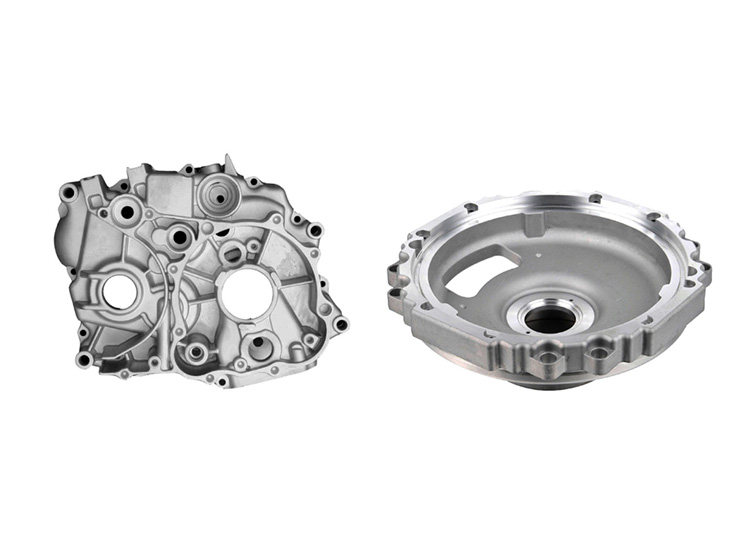The 8-Minute Rule for Alcast Company
The 8-Minute Rule for Alcast Company
Blog Article
Our Alcast Company PDFs
Table of ContentsLittle Known Questions About Alcast Company.9 Simple Techniques For Alcast CompanyThe Facts About Alcast Company Uncovered5 Easy Facts About Alcast Company ShownThe Buzz on Alcast CompanyAlcast Company for Beginners
Chemical Contrast of Cast Aluminum Alloys Silicon promotes castability by reducing the alloy's melting temperature and improving fluidity throughout spreading. In addition, silicon adds to the alloy's toughness and put on resistance, making it valuable in applications where durability is essential, such as automobile parts and engine components.It also enhances the machinability of the alloy, making it easier to process right into ended up items. This way, iron contributes to the overall workability of aluminum alloys. Copper raises electrical conductivity, making it useful in electric applications. It likewise enhances deterioration resistance and includes to the alloy's general strength.
Manganese contributes to the strength of light weight aluminum alloys and enhances workability (Casting Foundry). It is generally utilized in functioned light weight aluminum products like sheets, extrusions, and profiles. The presence of manganese help in the alloy's formability and resistance to splitting during construction processes. Magnesium is a light-weight element that gives stamina and impact resistance to light weight aluminum alloys.
Not known Details About Alcast Company
It enables the production of lightweight elements with superb mechanical residential or commercial properties. Zinc improves the castability of light weight aluminum alloys and helps manage the solidification procedure throughout casting. It improves the alloy's stamina and solidity. It is often discovered in applications where complex forms and great details are required, such as ornamental castings and specific vehicle components.

The main thermal conductivity, tensile stamina, return stamina, and prolongation vary. Amongst the above alloys, A356 has the greatest thermal conductivity, and A380 and ADC12 have the least expensive.
The Ultimate Guide To Alcast Company

In precision spreading, 6063 is fit for applications where elaborate geometries and high-quality surface coatings are paramount. Examples include telecommunication units, where the alloy's superior formability enables for streamlined and cosmetically pleasing styles while keeping architectural integrity. In the Illumination Solutions market, precision-cast 6063 parts develop classy and efficient lighting fixtures that require complex forms and excellent thermal efficiency.
It leads to a better surface area coating and far better deterioration resistance in A360. The A360 displays exceptional elongation, making it optimal for complicated and thin-walled elements. In precision casting applications, A360 is fit for sectors such as Customer Electronic Devices, Telecommunication, and Power Devices. Its boosted fluidness permits elaborate, high-precision elements like smartphone casings and interaction tool real estates.
All About Alcast Company
Its unique buildings make A360 a valuable choice for precision casting in these industries, enhancing item resilience and high quality. aluminum foundry. Light weight aluminum alloy 380, or A380, is an extensively made use of spreading alloy with a number of unique attributes.
In accuracy casting, aluminum 413 beams in the Customer Electronic Devices and Power Equipment industries. It's typically used to craft elaborate components like smartphone real estates, electronic camera bodies, and power device cases. Its precision is amazing, with tight resistances as much as 0.01 mm, making sure flawless item setting description up. This alloy's remarkable corrosion resistance makes it an outstanding choice for exterior applications, making certain resilient, resilient products in the stated markets.
Not known Details About Alcast Company
Once you have determined that the aluminum pass away casting procedure is suitable for your job, an essential following step is selecting the most ideal alloy. The aluminum alloy you select will significantly influence both the casting process and the homes of the end product. Due to this, you need to make your choice very carefully and take an educated strategy.
Establishing one of the most ideal light weight aluminum alloy for your application will certainly suggest evaluating a large selection of features. These relative alloy attributes comply with the North American Die Casting Association's guidelines, and we have actually separated them right into two categories. The first category addresses alloy characteristics that influence the production process. The second covers characteristics affecting the residential or commercial properties of the final item.
The 3-Minute Rule for Alcast Company
The alloy you select for die casting directly influences several facets of the casting procedure, like just how simple the alloy is to collaborate with and if it is prone to casting flaws. Hot splitting, also referred to as solidification cracking, is a common die spreading defect for light weight aluminum alloys that can result in interior or surface-level splits or cracks.
Specific light weight aluminum alloys are more prone to warm splitting than others, and your option ought to consider this. An additional common flaw located in the die casting of light weight aluminum is pass away soldering, which is when the cast sticks to the die wall surfaces and makes ejection difficult. It can damage both the cast and the die, so you need to look for alloys with high anti-soldering properties.
Rust resistance, which is currently a remarkable attribute of light weight aluminum, can vary significantly from alloy to alloy and is a crucial characteristic to think about relying on the ecological problems your product will be subjected to (Aluminum Casting). Wear resistance is another home frequently sought in aluminum products and can differentiate some alloys
Report this page